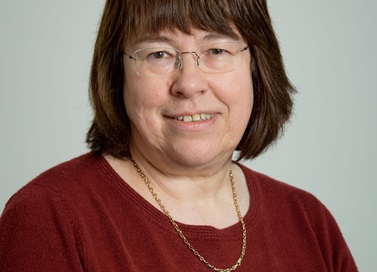Tears, cheers and priorities for the next three years
30 July, 2017
On 28 June in the Conference Centre in Edinburgh I became the 16th President of the Royal College of Psychiatrists.
Since the election result in January I have been preparing to take up this role.
I will be leaving my full-time clinical post as an old age psychiatrist but will still work two days a week for Leeds and York Partnership Foundation trust.
I am really grateful for the Trust’s support which means I’ll continue to see patients which will hopefully keep me anchored to reality.
A tribute to my predecessor
Starting as President meant sadly saying goodbye to Simon.
His Presidency has been incredibly successful. He has bought huge amounts of energy, enthusiasm, wisdom and sheer hard work to the role.
He has visited every medical school in the UK and inspired a whole generation of medical students. He has developed relationships with politicians and others in key positions and has been able to directly influence them.
He has improved the image of psychiatry in the media beyond all expectations and the College is now a leading voice in issues around Mental Health. All this has been done apparently effortlessly and with wit and humour.
Luckily, I can’t imagine that Simon will stop the work that he is so passionate about. I am sure he will continue to champion our cause and to do all he can to support the College, and I’m counting on his help as I step into the role.
Congress: the best yet
I was in Edinburgh for the International Congress. This has gone from strength to strength and this year’s meeting was the best yet.
My favourite session consisted of two keynote talks. The fist was from Karl Deisseroth, an American Psychiatrist, who is researching at the cutting edge of neuroscience and who has developed new techniques for studying neural circuit function.
There is no doubt that his work is laying the foundation for a proper understanding of the physical basis of mental disorders. He is also helping us with the Gatsby Wellcome Neuroscience project which is modernising the neuroscience that we teach our trainees.
Karl’s talk was followed by one from a patient who developed a very severe postnatal illness. Her description of her illness, the effect on her children and her relationship with the psychiatrist who eventually managed to get her well was incredibly moving. There wasn’t a dry eye in the house.
These two talks perfectly illustrate why we are so lucky to be psychiatrists.
The juxtaposition of the most up to date science with the moving and positive human story shows what makes psychiatry a unique and privileged career.
The whole four days of congress were filled with high quality and varied talks and sessions. There were 2,500 delegates and I caught up with people I haven’t seen since I was a trainee.
If you weren’t fortunate enough to get to Congress, you can catch up with things – see our article Catch up with Congress.
We also launched the new College magazine RCPsych Insight with the (slightly unflattering) cartoon of myself and Simon on the front.
This is a new venture, the brainchild of our CEO Paul Rees, and we are going to trial it for a year.
Let us know what you think and if there are any particular articles you would like to see in it.
My priorities
So now I have started what am I going to do? The first thing will be to start work on my manifesto promises.
These included holding the Government to account on funding, promotion of integrated care, recruitment, retention and trainee support.
That is a massive agenda but I will do my best. I also know from my time as Dean what a huge amount of support there will be from Members and College Staff.
I am going to make it clearer how members can get involved in College roles and there will be more opportunities so please watch the posts for members.
area of the website.
I know how busy everyone is but College work allows a bit of respite from the pressure of clinical work and a chance to influence patient care in a different way. I can only achieve what I want to with your help.
I also plan to visit as many places as I can to meet College members and find out what you feel the College should be doing.
I’ll be at lots of College meetings and conferences and will happily stay anywhere there is a Premier Inn so please invite me to your events. I look forward to seeing as many of you as possible in the coming months.
Professor Wendy Burn
President


